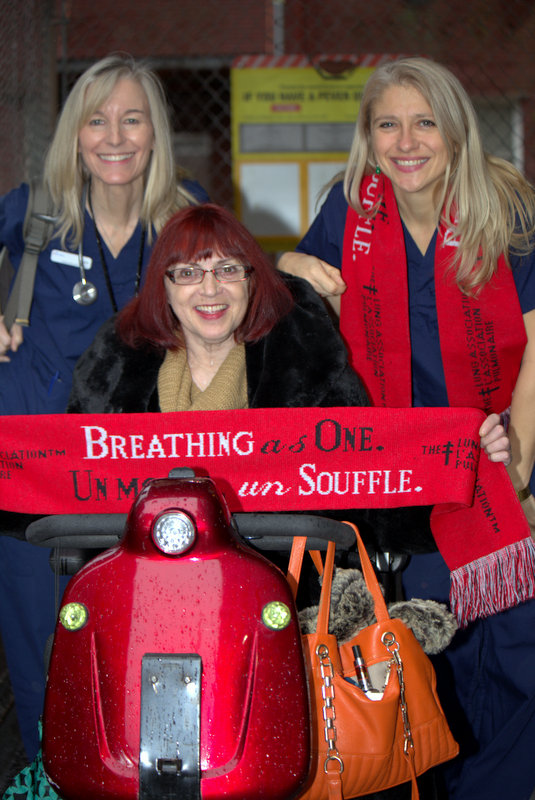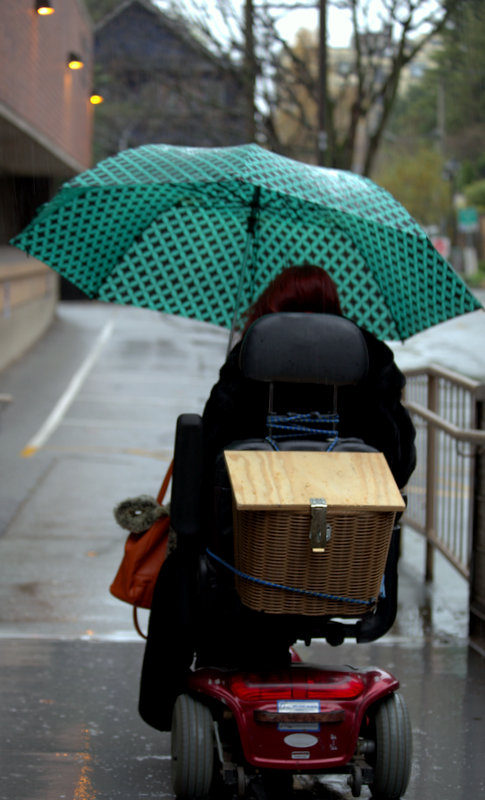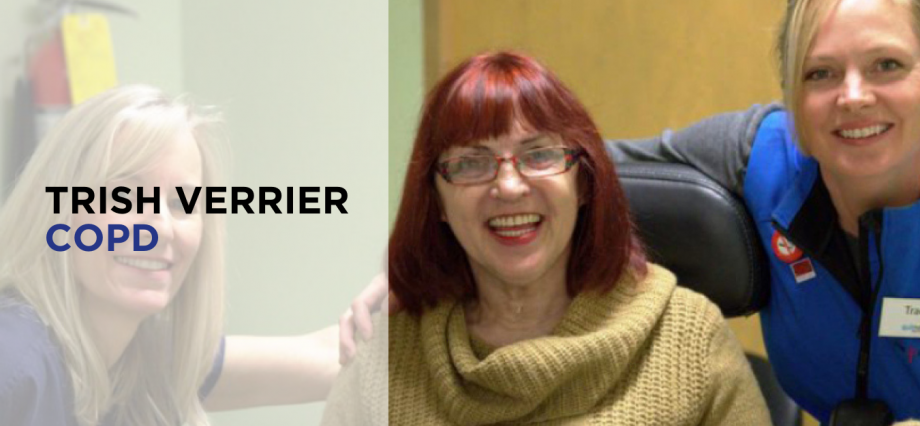I am tackling my COPD diagnosis with optimism and signature hugs. I see myself as a vibrant 65-year-old with hair as red as my scooter and a smile that lights up a room. Rarely does anyone detect signs of the sadness or pain I’ve endured. Nor does anyone hear my complaints – which says a lot considering my serious, and sometimes scary, lung condition.

Where did you grow up?
I grew up in Thunder Bay, where I suffered neglect and abuse at the hands of her father, leaving no mystery as to why by 18 years of age, I ran away to Vancouver. Determined to forge a better life, I vowed once I had enough money, I would help my mother come out West as well. Unfortunately my mother passed before she could.
When did health problems present in your life?
Sadly no sooner had I started my new life, bad health began to hold me back. As it happened, I spent much of my adult life in and out of hospital beds, struggling to manage my pain. By my forties, I began to learn to cope with COPD (chronic obstructive pulmonary disease) and related breathing difficulties.
My life was no cakewalk, that’s for sure. I didn’t always feel as content as I feel now. In fact I could get pretty low. But one day a few years ago now, I decided to look at my life differently. I remember when it happened. It was November and bitterly cold. I was at my local clinic and this homeless man wandered in. He didn’t have a coat and he was clearly freezing. I don’t why, but something triggered. I began to see all my struggles as victories. I realized I had a lot to give and no time to lose. As a result my world has become a much happier place.
How have you dedicated your life to support of your community?
Since that November night, I have visited more than 100 stores and succeeded in raising thousands of dollars’ worth of donations in warm clothing and food for the homeless, and my work continues today. I constantly encourage friends and neighbours to donate what they can, and I crochet scarves for women in need. I have also established a program called ‘Hugs for Life.’ Everyone needs a hug. Even if it’s from someone they don’t know. Through ‘Hugs for Life,’ I aim to provide some comfort and cheer (along with small stuffed animals) to patients alone in hospital, not unlike I often was for so many years.
Because of my debilitating lung condition, walking across the room sometimes feels like an impossible chore. To get around, I rely on my electric scooter, and to breathe, a range of medications and inhalers. To be honest, my COPD can be very scary. It makes me remember the fear I had as a child; the fear of not having family to protect me, the fear of not being able to breathe – but that same feeling is a reminder to be thankful for every day I’m still here, and for all the kindness I have received.
 How has the community supported you?
How has the community supported you?
I may not have relatives to watch over me, but I’m very grateful for the friends I do have – including my COPD support team. I call my respiratory nurse, Beth Hutchins, a lifesaver. I called Beth for help recently and she came right over. If Beth hadn’t come and found out I had taken too many pills, I would have died. I am so thankful.
I hope my story will inspire others. I’m proof it’s never too late to make a difference.

